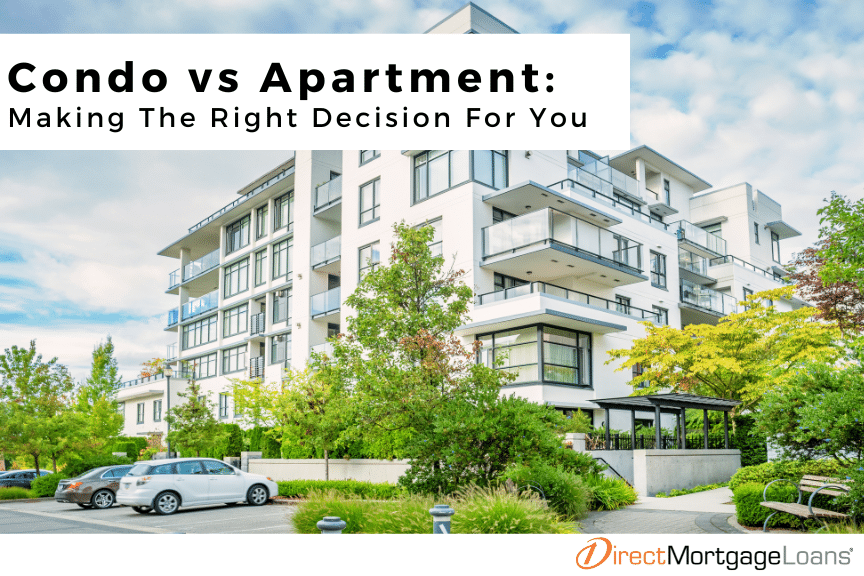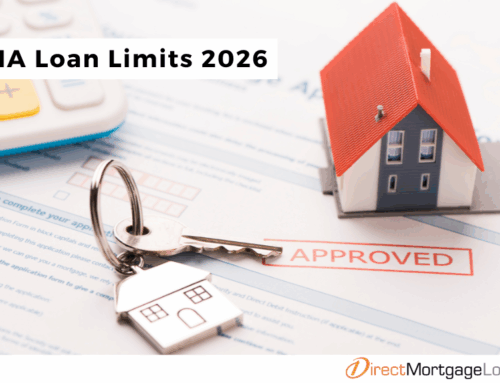Condos and apartments might seem similar on the surface, but there are important distinctions between the two. Let’s dive into the key differences to help you decide which option is right for you.
Subscribe to our blog to receive notifications of posts that interest you!
The Differences: Condo vs Apartment
While condos and apartments are both typically units within larger residential buildings, there are differences in their ownership, costs, maintenance, and amenities.
Ownership And Renting
The main difference between condos and apartments lies in ownership. Condos are purchased and owned by individual residents, while apartments are rented from a landlord or property management companies.
Condo Ownership
A condo is a type of residential property where you own your individual unit within a larger building or complex. As the owner, you build equity as the property value increases over time. While you have complete control over your interior space, the building’s exterior and shared amenities are collectively owned and maintained by a homeowner’s association (HOA).
Apartment Renting
On the other hand, apartments are rented from a landlord or property management company. As a tenant, you lease the unit for a specific period without owning the property. The landlord typically handles all maintenance responsibilities, both inside and outside your apartment. However, unlike owning a condo, renting does not allow you to build equity over time.
Cost Consideration
The decision to buy a condo or rent an apartment involves weighing various costs. Let’s break down the expenses associated with each option.
Cost Of Buying A Condo
- Down Payment: This is the initial upfront payment, typically a percentage of the condo’s purchase price.
- Closing Costs: These are one-time fees paid at the closing of the sale. They cover various expenses like title insurance, appraisal fees, attorney fees, and transfer taxes.
- Private Mortgage Insurance: If your down payment is less than 20% of the purchase price, you’ll likely need PMI. This is an added monthly cost to protect the lender in case of default.
- Monthly Mortgage Payment: This covers the principal and interest on your home loan.
- Homeowners Insurance: Protects your condo from damage due to fire, theft, or weather.
- Property Taxes: Annual taxes based on your condo’s value, assessed by the local government.
- Utilities: You’ll be responsible for paying for utilities like electricity, gas, water, and sewage.
- Maintenance & Repairs: While exterior maintenance is usually taken care of, you’ll still be responsible for maintaining the interior of your unit.
- HOA Fees: Monthly or quarterly fees for building maintenance, common areas, amenities, and property insurance.
Cost Of Renting An Apartment
- Application Fee: A one-time payment to cover the landlord’s costs of processing your rental application, including background and credit checks.
- Security Deposit: A refundable amount held by the landlord as security against potential damages to the apartment. Typically, equal to one- or two-months’ rent.
- Monthly Rent: The recurring payment for occupying the apartment.
- Utilities: These typically include electricity, gas, water, sewer, and sometimes trash. In some cases, utilities might be included in the rent, but this is less common.
- Renters Insurance: A policy that protects your personal belongings in case of theft, damage, or loss.
- Pet Rent: If you have a pet, many landlords charge an additional monthly fee. There might also be a pet deposit or non-refundable pet fee.
Maintenance and Responsibility
Maintenance and amenities are important factors to consider when choosing between condo and apartment living.
Condo Maintenance
Condo owners are typically responsible for the upkeep of their individual units. However, the maintenance of common areas such as the building exterior, hallways, elevators, and landscaping, is typically handled by the homeowners’ association (HOA).
Apartment Maintenance
Apartment renters generally have minimal maintenance responsibilities. The landlord or property management company usually handles all maintenance, both inside and outside the unit.
Amenities
When deciding between buying a condo or renting an apartment, the amenities offered could greatly impact your choice. Features like gyms, pools, and security can add convenience and enhance your living experience. Let’s dive into the common amenities to look for in both options.
Condo Amenities
Condos often offer a range of shared amenities. While these can vary, common features include fitness centers, swimming pools, business centers, clubhouses, and on-site security.
Apartment Amenities
Apartments could also provide a variety of amenities depending on the complex. Residents can typically enjoy fitness centers, swimming pools, business centers, laundry facilities, grilling areas, playgrounds, and on-site parking.
Condo vs Apartment Pros and Cons
If you’re thinking about buying a condo or renting and apartment, consider the pros and cons to help determine if this option is right for you.
Buying A Condo
Buying a condo allows you to build equity and enjoy ownership, but it also comes with costs and maintenance responsibilities.
Pros Of Buying A Condo
One major benefit of purchasing a condo is the opportunity to build equity with each mortgage payment. Additionally, while there are usually some rules regarding modifications, you generally have more freedom to personalize your space compared to living in an apartment.
Cons of Buying A Condo
One major downside of purchasing a condo is that it usually involves higher costs compared to renting an apartment. Apart from the down payment and closing costs, condo owners need to account for HOA fees, property taxes, and sometimes mortgage insurance, all of which can add up and make owning a condo more expensive than renting.
Renting An Apartment
Just as with condos, renting an apartment has its own set of benefits and drawbacks.
Pros Of Renting An Apartment
Renting an apartment is often more affordable than buying a condo. Monthly costs are generally lower, and you avoid upfront expenses like a down payment and closing costs. Additionally, renting provides more flexibility if your circumstances change, such as relocating for a job. It’s typically easier to break a lease than to sell.
Cons Of Renting An Apartment
One drawback of renting is that it does not allow you to build equity. Instead of contributing to your own investment, your monthly payments benefit your landlord. Additionally, renters have limited control over their living space and are often subject to rules prohibiting them from painting or making changes to the unit.
Who should consider buying a condo?
Condo ownership is ideal for those looking to build wealth through property investment. As property values tend to increase over time, owning a condo could be a sound financial decision. Purchasing a condo could also be a great option for retirees or empty nesters looking to downsize, offering smaller living spaces with reduced maintenance responsibilities.
Who should consider renting an apartment?
Renting an apartment could be a good option if you’re not ready to commit to buying a home yet. If you’re unsure where you’ll be living in a few years, or do not have enough funds to buy a place right now, renting may be best. Apartments are also ideal if you like the idea of not having to worry about repairs or maintenance.
Condominium vs Apartment FAQ’s
What is a condo?
A condominium, or condo, is a type of residential building where each unit is individually owned. Condo owners have complete ownership of their unit’s interior, while the building’s exterior and shared spaces are typically managed by a homeowner’s association (HOA).
What is an apartment?
An apartment is a rental unit within a larger building. Unlike condos, apartments are not individually owned; instead, they are leased from a landlord or property management company. The landlord is responsible for maintaining the building and its common areas.
Can you own an apartment?
If you’re a tenant, you cannot own an individual apartment. Property investors typically buy apartment complexes and lease out individual units. However, you could potentially purchase an apartment complex as an investment opportunity.
Can condo owners rent out their units like apartments?
Condo owners typically have the right to rent out their units as apartments. However, it’s important to review the specific rules and regulations set by the homeowner’s association (HOA). Some HOAs might have restrictions on renting, such as limits on rental periods, or the number of units that can be rented out at a time.
Are condos safer than apartments?
The safety of a condo or an apartment can vary depending on factors such as the building’s infrastructure and location. While condos often have additional security measures due to HOA rules and financial resources, these features could also be found in well-managed apartment complexes.
When evaluating a property, inquire about security features, maintenance history, and the building’s reputation. Research local crime rates, the proximity to essential services, and the overall atmosphere of the area.








Leave A Comment
You must be logged in to post a comment.